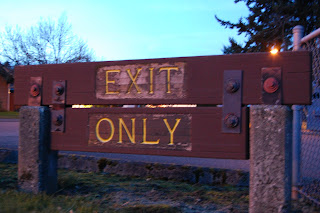Little lamb, who made thee?
Does thou know who made thee,
Gave thee life, and bid thee feed
By the stream and o’er the mead;
Gave thee clothing of delight,
Softest clothing, woolly, bright;
Gave thee such a tender voice,
Making all the vales rejoice?
Little lamb, who made thee?
Does thou know who made thee?
Little lamb, I’ll tell thee;
Little lamb, I’ll tell thee:
He is callèd by thy name,
For He calls Himself a Lamb.
He is meek, and He is mild,
He became a little child.
I a child, and thou a lamb,
We are callèd by His name.
Little lamb, God bless thee!
Little lamb, God bless thee!Title: A lamb is seen as innocent, meek, vulnerable and dependent. Also, the symbol of a lamb paints a sacrificial picture that alludes back to the picture of Christ.
Paraphrase: Dear little lamb, do you know who made you? Who gave you life and fed you. Took care of you and protected you, helping you live a peaceful life. Do you know who made you? Dear little lamb I will tell you. He goes by your name, he is also a Lamb. He is just like you and he became a child. We are name after him. God bless you, little lamb.
Devices: Euphony-this poem was made to be sung therefore it is shadow by musicality.
Rhyme Scheme-AA BB CC DD AA AA EF GG FE AA. This rhyme scheme is very complex in that it has a very mellifluous flow to it with each two lines rhyming however, that is thrown off in the second stanza by the lines “He is called by thy name,/For he calls himself a Lamb” and “I a child, and thou a lamb/We are called by his name.” These lines have their own rhyme scheme to them and cause them to stand out from the rest of the poem, revealing the glory of Jesus and our Creator.
Allusion-The Lamb in the second stanza directly alludes to Jesus from John 1:29 where he is called “The Lamb of God.”
Imagery-a picture of a shepherd watching over the Lamb is painted when Blake says “bid thee feed/By the stream and o’er the mead” (lines 3-4).
Symbolism-A Lamb is a symbol for purity and sacrifice which correlates to the allusion of Christ.
Repetition-The beginning and end of the first stanza are the same couplet. Also, the first couplet of the second stanza is repetitive, along with the last couplet. This repetition enhances the importance of our Creator and everything he has done for us.
Rhetorical question-The first two lines ask questions that the narrator is already going to explain and answer. These questions are there to evoke the thoughts of the reader so they are reminded of the power of their Creator.
Personification-In line15 Blake personifies the Lamb in correlation to Jesus.
Attitude: Awestruck, humbling, and reminiscent
Shifts: There are 6 different shifts in this poem. The first shift is after line 2 and it instigates a question to the reader to make them think. The next 6 lines reveal to the reader everything the lamb’s creator does for him. The poem then shifts back to the questions proposed in the first two lines. The second stanza begins with repetitive lines as a marker to the reader so they understand the importance of the creator. It then shifts to display the sacrifice of Jesus and how he became a Lamb just like us. Finally the last shift is before the ending couplet which is the final reminder that God is in control of us.
Title: Instead of focusing on the vulnerability of a lamb this poem leans toward the sacrifice of the Lord.
Theme/Total Meaning: In totality this poem seems to be a reminder to the reader about our human lives and how we are all lost without our Creator who sent his son as a sacrifice for us. This poem alludes to many parts in the Bible that reveals God’s love for his people. (ie. Psalm 23, John 3:16 and John 16:9)












